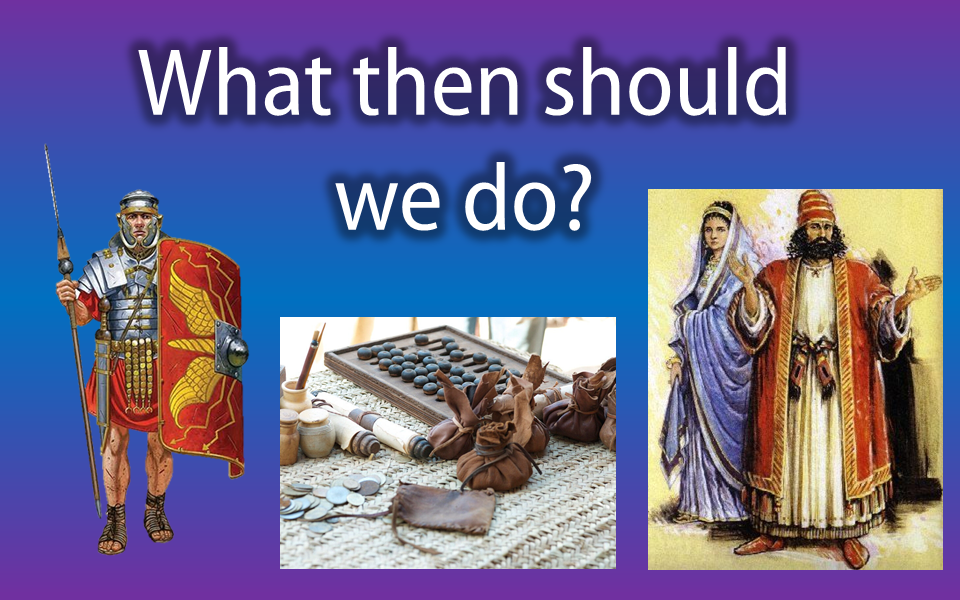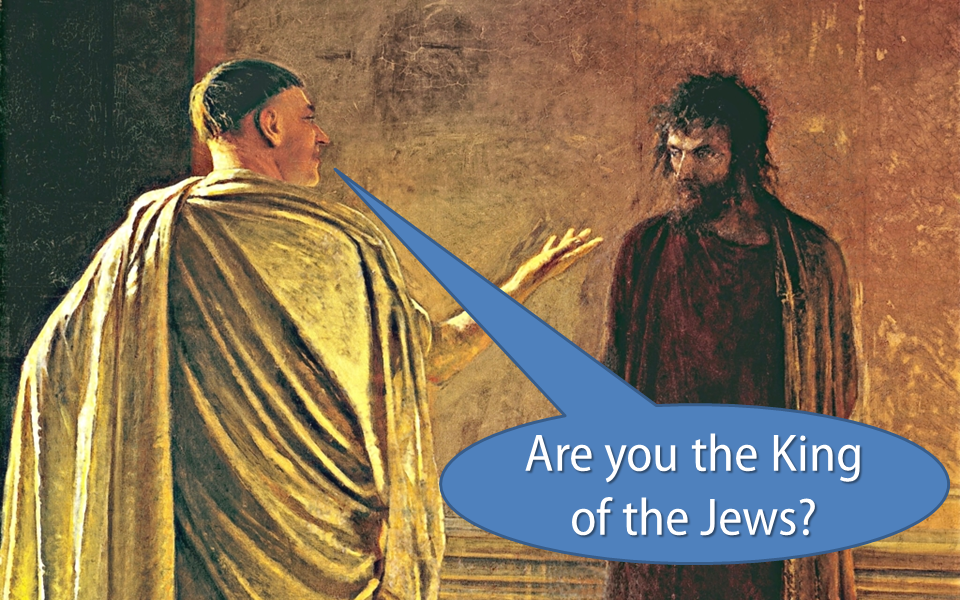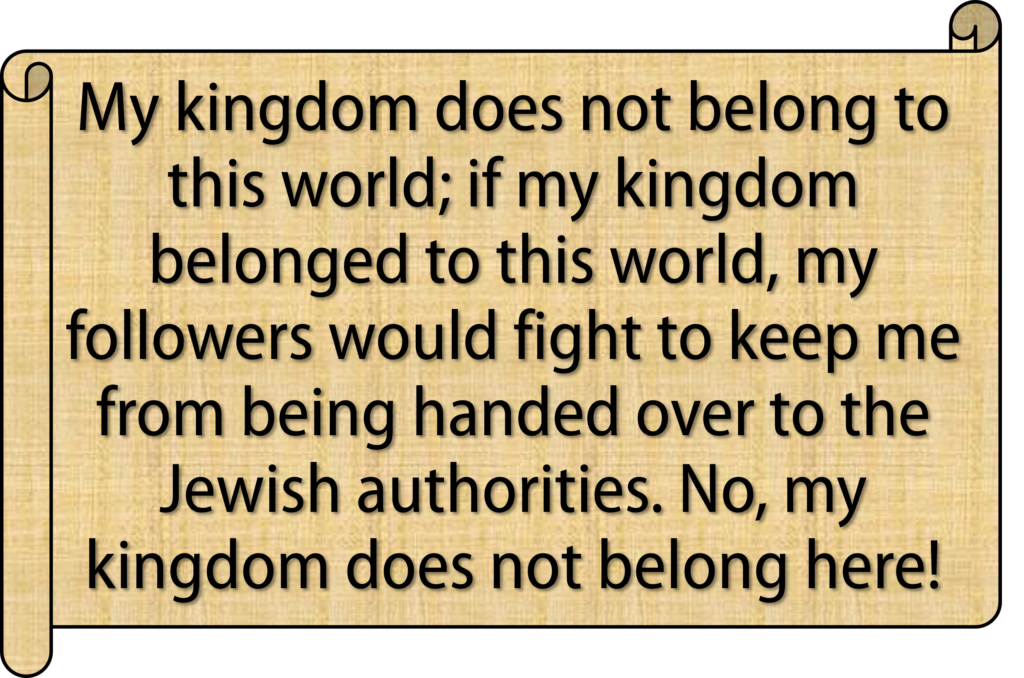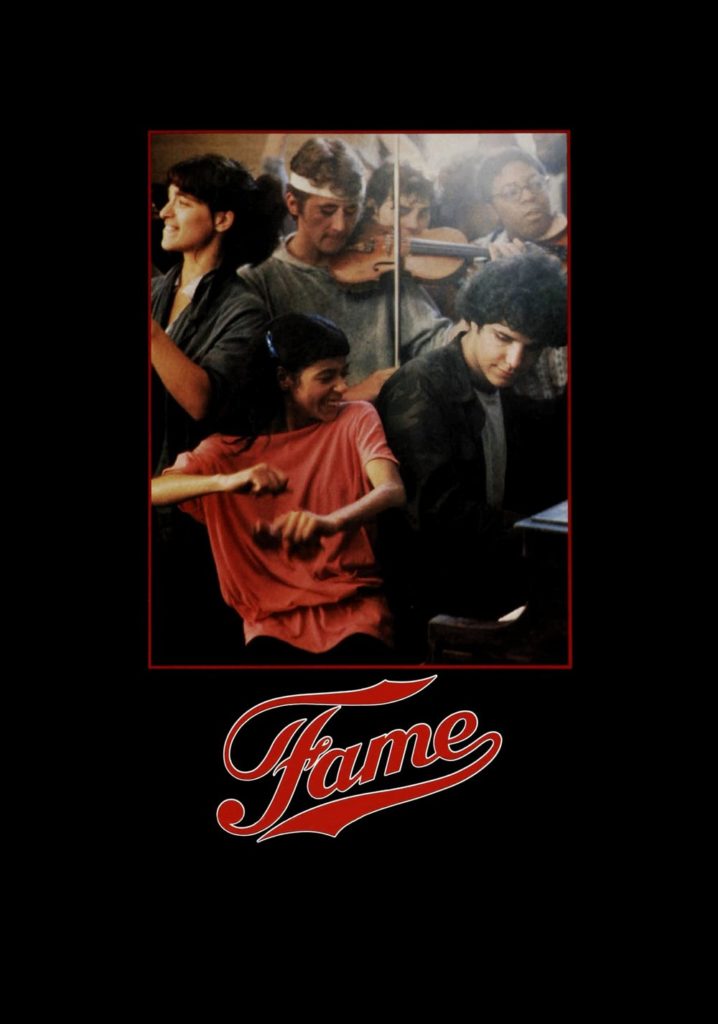Hespeler, 12 December 2021 © Scott McAndless – Advent 3
Zephaniah 3:14-20, Isaiah 12:2-6, Philippians 4:4-7, Luke 3:7-18 (Click to read)
Can I make a confession to you? Every time I read out the story of the preaching of John the Baptist from the Gospel of Luke, I do a double take. Something doesn’t seem quite right. The thing that trips me up is the little summary of the preaching of John that Luke tags on the end of it: “So, with many other exhortations, he proclaimed the good news to the people.”
This is, pretty clearly, the gospel writer’s take on what John was doing. It isn’t found anywhere else in the gospel record and doesn’t appear to be an oral tradition. This is basically Luke looking at the whole message of the Baptist and saying, yes, this sounds like a whole lot of good news. But I have to ask, what about what John has just said sounds like good news to you?
Seems Like Pretty Bad News
He has just spent his time calling the people who, in good faith, have come out to listen to him a “brood of vipers!” He’s been talking about the “wrath to come” and warning that it’s going to be hard to escape. He says, “the axe is lying at the root of the trees; every tree therefore that does not bear good fruit is cut down and thrown into the fire.” Ouch!
He’s been talking about how the people will be sorted from one another like the wheat is separated from the chaff by a winnowing fork and he is saying that a good number of people are about to be burned up in the fire! You know, not really your average good news report. So I do kind of wince every time I read that. It makes me wonder if Luke is trying to be ironic.
Advent is Also Like that
But, as I think about it, maybe my problem with Luke’s summary of the message of John is the same problem that I have with the season of Advent. In many ways, Advent seems to be a very ironic season in the life of the church. These are the uplifting themes that we run through every Advent: hope, love, peace and joy. Because, in our society, it is considered to be part of the Christmas season we also tend to focus on heartwarming stories and hopeful ideals. What’s more, because we simply cannot wait, we usually go ahead and start singing Christmas carols with all the nostalgia and good feelings that come with them. Advent feels like a good news season.
But have you read the passages of scripture we usually read in the church during this season? It is all full of disaster, destruction and all of the elements of John the Baptist’s speech. It is a season of apocalyptic fire and floods, pestilence and persecution. That is because Advent is not supposed to be about preparing for Christmas. As far as the church is concerned, we do not spend this season anticipating the coming of the Son of God born in a manger but rather the coming of the Son of Man in the clouds with glory at the end of all things.
Puff Pieces
But there are two kinds of good news. There is the kind of good news that is basically just puff pieces. These are stories that are meant to distract and divert. They focus on the positive aspect of some person or event without even acknowledging that they might have a negative side. There is a lot of that kind of news around Christmas time as the media pitches in to get everyone in the right mood so that they will go out and do a lot of shopping. And that’s all well and good, we do sometimes need a break from being serious. But I would argue that good news is supposed to be something more than just looking at the bright side of everything. Because, if that’s all it is, it is really just a practice of denialism.
Truly Good News
I would suggest that truly good news has to be able to grapple with the dark side of life, not just the bright side. And that’s what I do see John the Baptist struggling with in this passage. It is also what I see the church struggling with during this season of the year and that is a good thing.
When the people come out to John, he doesn’t sugar-coat the situation to them. He demands that they come to terms with what is really going on in the world. If he were preaching today, for example, he would demand that we face problems like the homelessness crisis, the opioid epidemic and the climate crisis. In fact, I have no doubt that John would be, let’s just say, very forceful in his presentation of these problems and threats. But, as inflammatory as John’s language might be, and I do mean literally inflammatory, there is one thing that makes it good news.
John has an Answer
The people who’ve come out to see him ask him, “What then should we do?” And the good news is that he has an answer. You see, when you have a crisis or a problem that you can’t do anything about, that’s nothing but bad news. But, if you can do something, that changes your perspective about everything. Now, that doesn’t mean that you have to have the ability to totally resolve or fix what is wrong. That is a mistake that people often make and it leads to despair and often to nothing being done at all.
For example, people look at a huge problem like global climate change and they say, “Anything that I do personally is going to be such a small drop in the bucket, I might as well not even try.” That’s the kind of attitude that leads to a lot of disillusionment. But I think it is important to remember that, even if you do not have the means or the influence to actually fix what is wrong, if you do take the right action, you can be part of the solution and that makes all the difference in your attitude. It allows you to hold onto hope.
So, John does give to the people examples of the right kind of actions that they can take. And, interestingly enough, he’s able to recognize that different people are in different positions and that might require different kinds of actions in order to be effective. So, let’s take a look at the specific actions that John does encourage people to take.
To the Soldiers

He speaks to the soldiers. Now, it is not entirely clear who these soldiers are. They might be Roman legionary troops, though it would seem rather strange for members of a foreign occupying force to come out to see a figure like John. It is maybe more likely that they are members of a local militia force. But whoever they are, it is pretty clear what they represent.
They are the official defenders of the system according to which the entire world works. They are the ones who ensure that the wealthy keep their wealth while the poor stay in their place. They are the ones who wield the violence that exploits the people for the benefit of the powerful. And, of course, they really don’t have much choice in that matter. Wherever their sympathies may lie, they have to follow orders.
So, what does the Baptist say to them? “Do not extort money from anyone by threats or false accusation, and be satisfied with your wages.” Think about what this means. These are people who are totally caught up in a system of exploitation. They are the defenders of the system itself. And yet, John is challenging them to take a stand and not personally take part in that systemic exploitation – at least not to use it for their own purposes. He is encouraging them, in whatever small ways they can, to undermine the system from within.
To the Tax Collectors
He gives the same advice to the tax-collectors who came to him. Now nothing, in the ancient Roman Empire was more riddled with corruption and exploitation than the tax system. This was because it was designed to work that way. Tax collectors were not government employees but rather independent contractors who bid to get the gig. They weren’t actually paid and the only way they could earn their living was by squeezing extra money out of the people. So, from top to bottom, the entire system was riddled with individuals who were all squeezing the people under them for whatever they could get. The people at the bottom – the actual taxpayers – were often squeezed far beyond what they could bear.
So, when John says to them that they should, “Collect no more than the amount prescribed for you,” he is actually asking a great deal. He is basically asking them to forgo the only source of income or profit that they have. The message seems to be that, when you are caught in a corrupt and exploitative system, anything you do to personally step out of that system can be a powerful and transformative statement.
To the People
So John speaks to the soldiers and the tax collectors. He has one more answer that seems to be directed to the people in general. To them he says, “Whoever has two coats must share with anyone who has none; and whoever has food must do likewise.” This is perhaps the hardest one to hear, especially as it is directed at everyone so that nobody can say it doesn’t apply to them. This answer attacks the basic, underlying system that undergirds the very structure of society and that makes it possible for some people to have a superabundance of things while others don’t have enough to get by.
And the point of this is not to villainize or guilt the people of this world who have done well for themselves. If you have been successful in this life as a result of your talent and hard work, good for you. John is not attacking you. What he is targeting is the system that allows such wild inequity between those who have and those who have not. And the reason why that happens has much more to do with how everything has been structured in our society than it does with the acts of individuals.
The Individual Versus the System
John understands that an individual cannot change the system. But he does say that, if you have the means to and you want to be part of the solution instead of the problem, well then, you need to start to look at the possessions you have in a very different way. You need to start to see how they can be of service to those who are in the greatest need instead of just asking what they can do to make your life more comfortable.
This, then, is where I see the genius of John the Baptist’s good news message. He recognizes the corrupt and problematic systems that are at work in this world and that create misery and evil. He sees the corrupt political systems, financial systems and economic systems. And he recognizes that all of us, depending on the position we play in life, are part of these corrupt systems. We can’t help that. And we certainly can’t change them on our own. But he begins to put out there a dream of groups of people who decide to do things differently, who opt out of these systems in the ways that they can, and he suggests that they are the ones who will actually change the world.
The good news is that we are not powerless in the face of the evil and dysfunction of this world. We have a part to play in God’s work for its redemption. The good news is that as individuals we have little power to change anything. But if we all do it together, we can radically remake the systems of this world.
A Challenge
Which brings us, finally, to our challenge for this third Sunday of Advent. I think all of us, maybe especially in the chaos of recent months, have been in the place of those people who came out to John the Baptist in the wilderness. We don’t need him to tell us that the world is in a bit of a mess. We have all seen it. No, we come looking for some good news. And the good news he gives us is there something that we can do. We can choose together not to live according to the corrupt and evil systems of this world. And that is something that will have impact when we do it all together.
And that’s actually what the purpose of the church is. It is this thing that allows us to do it all together. My challenge for you this week is to take some action to be a part of what this congregation is doing to challenge the dysfunctional systems of this world. We are doing our best to address the inequality in our city by providing food through the food bank on a week by week basis. Can you do something to support or encourage that?
We are doing what we can to reach out to families who are finding that they don’t have enough tunics or cloaks or other pieces of clothing. And we are enabling a way to get that clothing from those who have enough to spare to those who don’t have enough. That is what Hope Clothing is. What can you do this week to support that endeavour?
Share What we Can Do
Above all, we are trying to model in this church a way of living out what John was asking those people who came to him to do. Do we do that perfectly? No. But the closer we stay to what John was asking for and what Jesus was calling for from his disciples, the more we are part of the solution instead of the problem.
So, do you know what you can do this week to help that along? You can share what we are doing in this church with someone else. Tell them, share a link or video on social media, reach out to someone and share with them the difference that the good news has made in your life. Be a part of the solution, not the problem.













